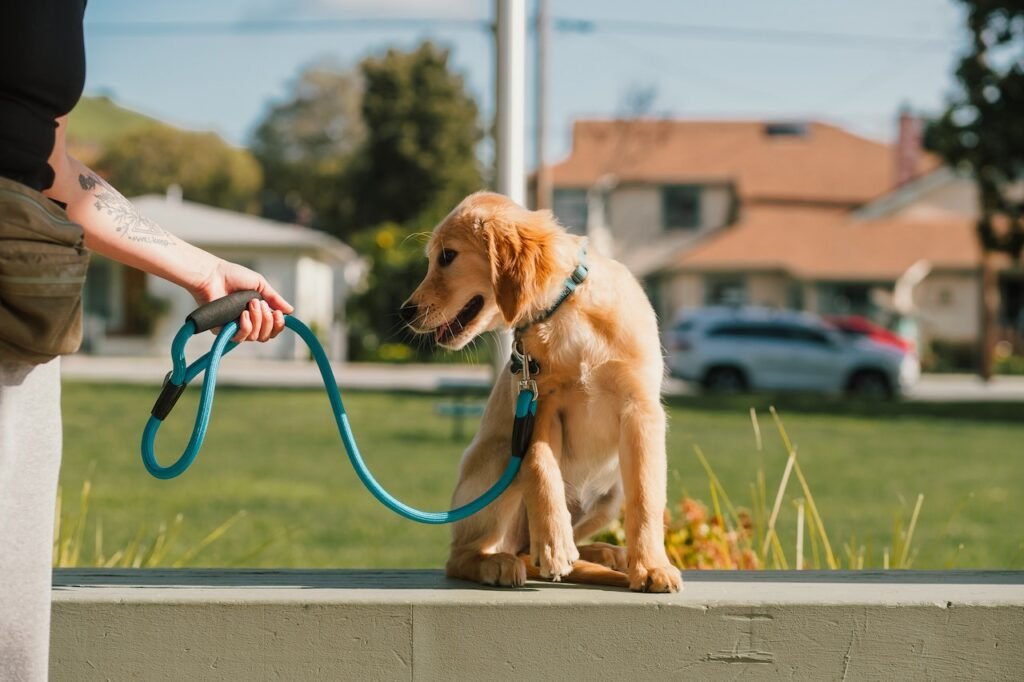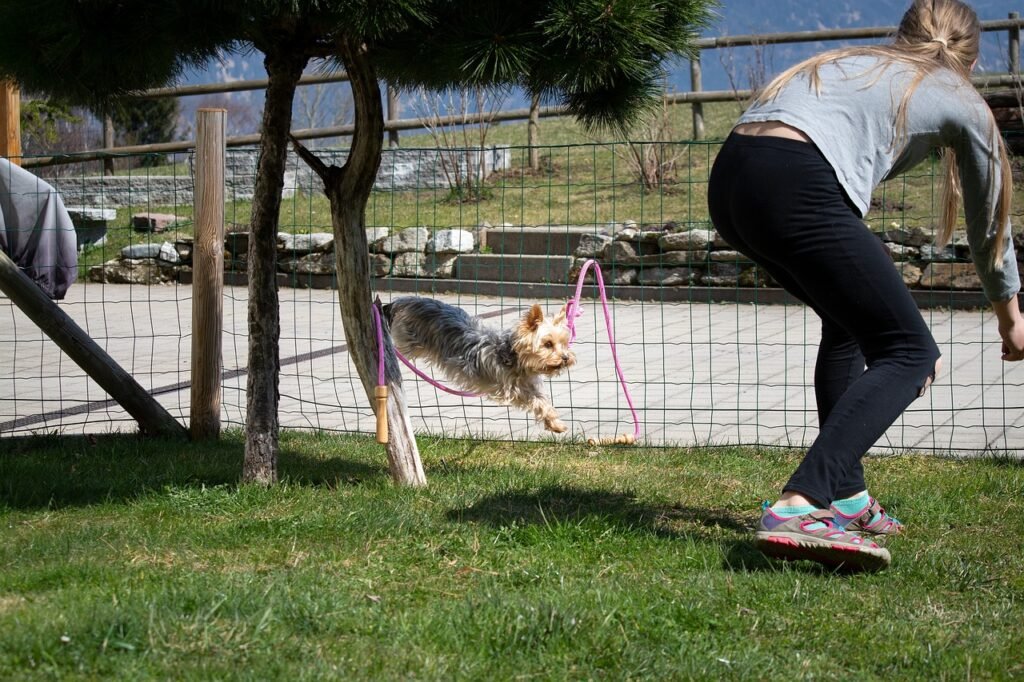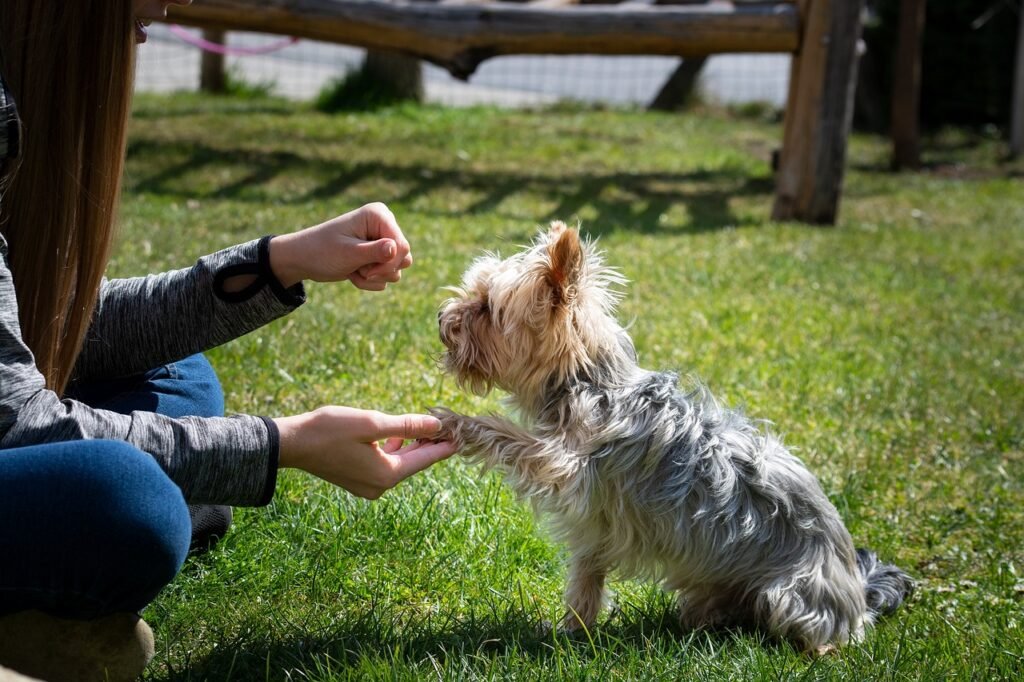You’ve probably been there: it’s a bright, sunny day, and you’re excited to introduce your puppy to the great outdoors. You clip on the leash, and boom! The once docile little furball is now a bucking bronco, pulling you down the road at warp speed. Ever found yourself thinking, why won’t this leash thing work like it does in the movies?
Let’s untangle the intricacies of puppy leash training.
Understand the Puppy Perspective
Before anything else, it’s essential to see things from their pint-sized point of view.
- World of Wonders: For pups, the outside is a sensory explosion. So many scents! So many sounds!
- Natural Instinct: The leash feels odd. It’s restricting their exploratory instincts.
Put yourself in their tiny paws. Wouldn’t you be a bit overwhelmed too?
Early Introduction: Slow and Steady
You don’t jump into deep waters on your first swimming lesson, right? Similarly, introduce the leash gradually.
- Indoor First: Let them wear the leash indoors without holding it.
- Short Sessions: Keep initial sessions short to prevent frustration.
For instance, imagine Rosie, a little Golden Retriever. She first encountered her leash indoors, playing fetch. It soon became just another fun accessory!
The Right Gear: Comfort is Key
Would you wear shoes that hurt? Probably not. Ensure your pup’s leash and collar are comfortable.
- Adjustable Collar: Ensure it’s snug but not too tight.
- No Pull Harness: A tool to help reduce pulling without causing discomfort.
Remember, if they’re uncomfortable, they’ll associate the discomfort with the leash – and that’s a big no-no!
Positive Reinforcement: The Treat Trail
Ah, the universal truth – dogs love treats. Use this to your advantage!
- Treats for Calmness: If they stay calm when you put on the leash, reward them.
- Continuous Praise: Compliment them for walking nicely. “Good job, Buddy!”
Think of it as their paycheck. They’ve earned it!
Teach the ‘Heel’ Command: Walking Side by Side
The ideal walking scenario? Your pup walking calmly beside you. That’s the dream!
- Use Commands: A simple “heel” when you start walking.
- Short Pulls: If they drift or pull, use gentle tugs to correct them.
Imagine a dance. It takes two to tango, right? The ‘heel’ command is your rhythm.
Dealing with Distractions: Squirrels, Oh My!
A bird, a butterfly, another dog – the world is filled with exciting distractions.
- Distraction Training: Start in a calm environment. Gradually introduce distractions.
- Stay Consistent: Don’t let them chase sometimes and restrain other times.
Imagine being on a diet and walking past a bakery. Tempting, right? It’s the same for your pup with distractions.
Tailor-Made Training: Every Pup is Unique
Just like no two humans are the same, every dog is different. Tailor your training accordingly.
- Personality Counts: A timid pup may need more encouragement. An excitable one might need more calming techniques.
- Adapt to Situations: Visiting a new place? Expect some hiccups. Be patient.
- Regular Check-ins: Every now and then, review and adjust your training methods.
“Dogs do speak, but only to those who know how to listen.” – Orhan Pamuk
Conclusion
Puppy leash training, much like any form of teaching, is an art. It’s a dance between understanding, patience, and consistent guidance. But remember, at the heart of it all, it’s about forging a bond. A bond that says, “I guide you, I trust you, and we explore this world together.” So, the next time you pick up that leash, think of it as a handhold, guiding your furry friend through the world’s wonders.
Key Takeaway: Puppy leash training is not just about controlling; it’s about guiding. With the right techniques, gear, and a bucket-load of patience, you can transform walks into harmonious adventures. Remember, every tug and treat is a step towards a bond that’ll last a lifetime. 🐾



